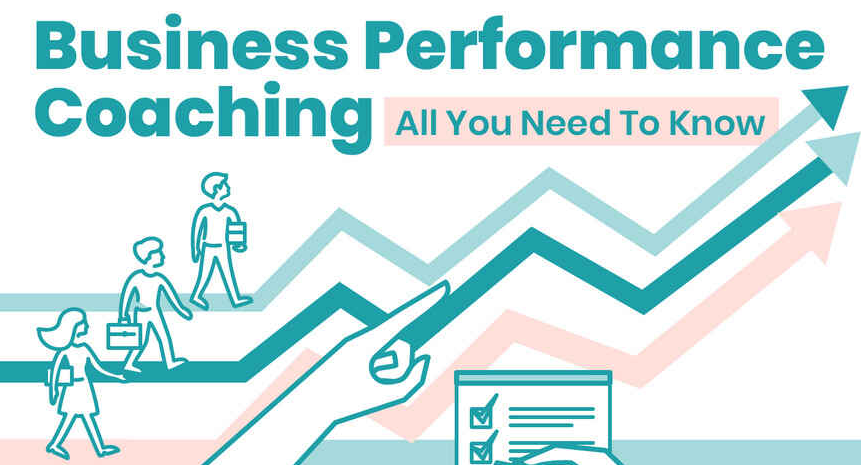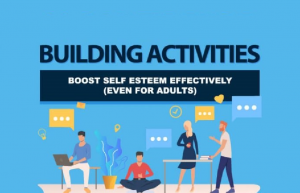Have you ever compared your professional life to a high-performance sports car? What about a professional athlete? Probably not – but it might not hurt to try it out sometime. We have a compelling new subject for you. It’s called high-performance coaching in the business, management and executive world.
It might seem like a strange concept to have a high-performing life, but it’s best to think about it as a way to meet your full potential and achieve your goals.
So strap in and come along for the ride! In this post, we’re taking coaching advice to another level as we talk about high-performance coaching and what it can do for you.
What is high-performance coaching?
It might sound like something to come out of the sports world, but you may be surprised to find out that high-performance coaching is a growing field in the business world, too.
It’s a combination of executive coaching, leadership coaching and business coaching but concentrated on achieving results.
While the other fields of coaching tend to revolve around professional development, performance coaching has a competitive angle. It’s about asking the question – how can I reach the top? How can I achieve results? Whether you’re an aspiring business leader or the head of a small company, you’ve probably asked yourself a similar question.
The big difference is that high-performance coaching is more about actually accomplishing your goals and objectives (that are mostly predetermined). A business coach, on the other hand, typically provides advice for a business or aspiring leader about how to set up goals in the first place. There’s a bit of hand-holding along the way.
Put it this way, if business coaching is like first learning to ride a bicycle, then high-performance coaching is like taking the training wheels off and speeding down the hill to reach top speed. In other words, high-performance coaching is a specialised niche that’s not for the faint of heart.
Find out how our users improved their performance through coaching
Back to Work After Maternity Leave – Aine’s User Story
‘At the time that I signed up for the coaching, I was struggling to find space for myself within my schedule. I …Read More
Identifying and Managing Constraints – Leslie’s User Story
‘Too often, If things are not done over short periods of time with some intensity, there is no change or life …Read More
Keeping Focused – Mary’s User Story
‘I was looking for advice on career advice. I’m in the third year of college and I have a year left and I realised …Read More
How does it work?
For the especially curious, you can read more about the science and history behind high-performance coaching in this excellent guide. But we’ll cover the basics here.
In short, the high-performance coach acts as a facilitator while working with a client. The coach works to shift a person’s negative mindset and reevaluate their inner dialogue.
If you’re early in your career, working towards an executive role as your career goal you might think executives know it all. But, executives can freeze up in the boardroom, just like an athlete can choke when placed on the spot in a championship game. To remedy this, the coach helps the client learn to step outside of the situation like an out-of-body experience. Doing so can help visualise the necessary steps, calm the client down and boost focus to accomplish the task.
A coach also helps to limit the critical and negative interference that is created in a client’s mind when they set out to perform a task. A performance coach helps a client achieve their best performance by reducing the “I can’t do this” feeling that is second nature to nearly everyone.
A high-performance example
Let’s look at an example to help illustrate what we’re talking about.
At work, Cara has a big project to submit – it’s the company’s big annual report and this year she’s been given the opportunity to lead the whole project.
While it’s great to lead the initiative, it’s a lot of work and it also forces Cara to step out into the spotlight, which is something she’s not used to.
Because of her anxiety and a strong desire to do well, her inner dialogue is very chatty. Throughout the process, she thinks “why me?” and “what did I do to deserve this?” She even starts to think back to a project she did in college that totally blew up in her face. She thinks about it over and over, and slowly, self-doubt and fear start to seep in, preventing Cara from feeling comfortable with her new responsibility.
Enter Thomas, her friend and mentor who, in this situation, plays the role of a high-performance coach for Cara. He helps her to break down the steps she needs to accomplish to wrap the project up. He shows her some online “how-to” videos about making some amazing graphics that tie the whole report together. He shows her examples of other corporate projects so she can learn what’s needed for her own success.
What is Thomas doing to help Cara? He’s not telling her about his favourite fonts to use in the word processor. He’s not preaching to her about how much talent she has to help her feel better. Instead, Thomas is simply creating an environment that helps Cara succeed. He’s reducing the obstructions, in a logical way, that prevents her from reaching her potential.
In the end, Cara nails the annual report, make some great business connections along the way and impresses her management team with her abilities and poise under pressure. Maybe Thomas should consider getting certified and becoming a professional performance coach!
What are the benefits of high-performance coaching?
In the example above, we saw some obvious benefits from the coaching experience. Cara boosted her confidence and reached her business goals at the same time. The high-performance coaching also helped her to:
– Create a supportive and empowering environment;
– Ask challenging questions and get meaningful answers;
– Engage in meaningful conversations;
– Realise potential;
– See through the noise; and,
– Convert time and effort into impactful results.
What is a high-performance individual and how do you become one?
Want to be a high-performing person? The high-performing individual is the term most applied in the business world to someone who stands out in a crowd (or the boardroom).
But it’s about way more than just being a hard worker or sucking up to your boss. To be an office MVP, you need to display some other important characteristics:
– Strong communication;
– Great networking abilities (and willingness);
– Good ethics and accountability for your actions;
– Highly self-motivated; and,
– Excellent creativity and adaptability.
That’s quite the bundle of traits, and it’s not even an exhaustive list! It’s no wonder that high performers continually blow their bosses away with their tactful use of skill and reliability.
The intangible skills, or soft skills, are what sets a high-performer apart at the workplace. Once you get to the business world, it doesn’t much matter if you graduated with honours at the college level or how many papers you published. It all comes down to how you excel vis-a-vis your workplace peers.
For example, “strong communication” doesn’t mean talking endlessly at the team meeting. It’s not about saying more, it’s about saying the right things and advancing the dialogue.
Or, self-motivation doesn’t mean staying late at the office every night and coming in on weekends. That’s just working hard, not smart. It might give your colleagues or bosses the impression that you’re swamped and can’t handle your regular workload. Instead, self-motivation is more about having the willingness to try new things, take on a new responsibility or to improve your skills.
Read more: The Benefits of Coaching Women Leaders
To truly know how to be a high-performing individual, sometimes it’s best to leave it to the experts and to work with a coach. They’ll give you the proper care and attention to help you grow into a high-performing role, no matter your industry or field.







